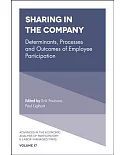The mission of the UN Principles for Responsible Management Education (PRME) initiative is to inspire and champion responsible management education, research and thought leadership globally
under the auspices of the United Nations. The Womens Empowerment Principles (WEPs), initiated by the UN Global Compact and UN Women, are a set of principles for business offering guidance on
gender equality in the workplace, marketplace and community. The PRME Working Group on Gender Equality was launched with a mission to bring together academics and employers to provide support
and resources for integrating gender issues and awareness into management education, and to foster related research to facilitate respect and support for PRME and the UNs Womens Empowerment
Principles.
Many businesses and organizations are increasingly aware of the business case for promoting gender equality, both within and outside their organizational boundaries. Some evidence suggests that
diversity in the workplace and gender equality boosts innovation and performance, and legal frameworks exist in many countries which mandate specific action on gender inequality in the
workplace. While some businesses are very active in promoting gender equality in society at large, most start by addressing gender quality in their own workforce. However, despite
organizational policies on promoting equality and equal opportunities for men and women, and some innovative corporate initiatives on gender equality, there remain challenges to be overcome in
many businesses, including throughout their supply chains.
This edited collection provides conceptual and research rationales as to why responsible businesses and organizations must address the issue of gender equality in the workplace. It also shares
case studies, action research and examples of good practices and innovations describing how businesses and organizations are working to alleviate gender inequality and promote gender equality
in various contexts.
Designed to support the rationale for gender equality in business and organizations, this book also provides evidence of implementation of gender equality in the workplace and demonstrates how
to deal with and overcome challenges. As such, it will be of interest to academics, employees, practitioners, policymakers, businesses, institutions and organizations.





















